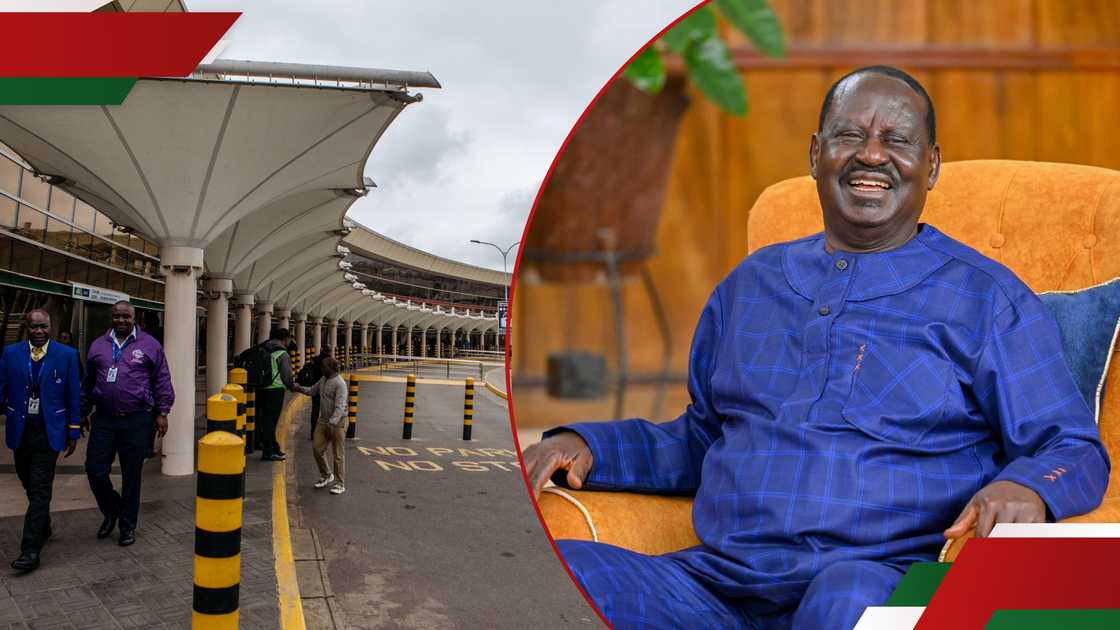Former Prime Minister Raila Odinga has weighed in on the ongoing debate surrounding Adani’s involvement in major infrastructure projects in Kenya.
In a media statement issued on Sunday, Raila addressed concerns raised by critics regarding transparency and investor integrity. He highlighted Adani Group’s longstanding interest and contributions to Kenya, which have been ongoing since 2010.
Speaking in Mombasa on Sunday, October 8, Raila Odinga pointed to Kenya’s economic challenges as a key reason to adopt Public-Private Partnerships (PPP). He also expressed strong support for Adani, describing the company as a “credible partner.”
“Adani is a credible partner. They have demonstrated their capabilities in projects that surpass anything we’ve seen in East Africa,” Raila said.
He further highlighted several projects in Gujarat and Mumbai, India, as evidence of the Adani Group’s potential when operating under the right conditions.
While citing a previous meeting with India’s Prime Minister Narendra Modi during his time as the Chief Minister of the state of Gujarat, Raila disclosed the Adani Group’s interest in investing in Kenya dates back to 2010, but was quelled by the absence of a proper legal framework for Public-Private Partnerships.
“When I was the Prime Minister of Kenya, I was introduced to Adani by Prime Minister Narendra Modi, who was then Chief Minister of Gujarat,” Raila recalled, as he described how the Adani Group turned a swamp in the Asian country into an industrial hub which included a port, power plant and overall industrial hub.
“There have been misgivings about how the PPP processes for JKIA and the energy sector have been handled, but we must ensure that Kenya remains an attractive destination for such investments,” he said.
ALSO READ
KETRACO Signs Sh95.7 Billion, 30-Year Agreement with Adani
Raila Hands Over ODM Leadership to Kisumu Governor Nyong’o
Raila Odinga emphasized that Adani Group’s proposal to invest in Kenya was first made over a decade ago but was delayed due to the lack of a legal framework for Public-Private Partnerships (PPPs) at the time. He pointed out that Kenya’s current PPP laws are modeled after those of India, particularly the state of Gujarat, where Adani has played a key role in infrastructure development.
However, Odinga cautioned that improvements to the current framework are necessary to boost investor confidence. “There have been concerns about how the PPP processes for JKIA and the energy sector have been handled, but we must ensure that Kenya remains an attractive destination for such investments,” he stated.
Raila reaffirmed his backing of Adani as a reliable partner, saying, “Adani is a credible partner. They have proven their capabilities in projects that surpass what we have seen in East Africa.”
He urged the Kenyan government to address public concerns transparently, ensuring that PPP processes remain open, competitive, and fair. While acknowledging the need for investors to make profits, Odinga stressed the importance of safeguarding national interests, including labor laws, environmental protections, and Kenyan courts’ jurisdiction in resolving disputes.
“If we scare away investors like Adani, we risk stalling critical infrastructure development at a time when our neighbors are pulling ahead,” he warned. Odinga also called on all stakeholders to refrain from politicizing the issue and instead focus on keeping Kenya competitive in attracting foreign capital to finance its infrastructure needs.
“If we mishandle this, it could break our ability to develop for years to come,” he cautioned.
The Adani Group, an Indian conglomerate, has proposed investing approximately $1.84 billion to expand and modernize Nairobi’s Jomo Kenyatta International Airport (JKIA). Under the PPP model, the plan includes building a new terminal, taxiways, and related infrastructure, to be completed over 30 years in a Build-Operate-Transfer (BOT) agreement, after which control of the airport would return to the Kenya Airports Authority (KAA).
However, the deal has sparked widespread debate. Critics, including the Kenya Human Rights Commission (KHRC) and the Law Society of Kenya (LSK), argue that the proposal risks privatizing a profitable national asset, potentially diverting a significant portion of JKIA’s revenue to Adani during the concession period.
Additional concerns have been raised about the transparency of the process, job security for Kenyan workers, and whether the deal offers value for money, given Kenya’s capacity to fund the expansion itself.

